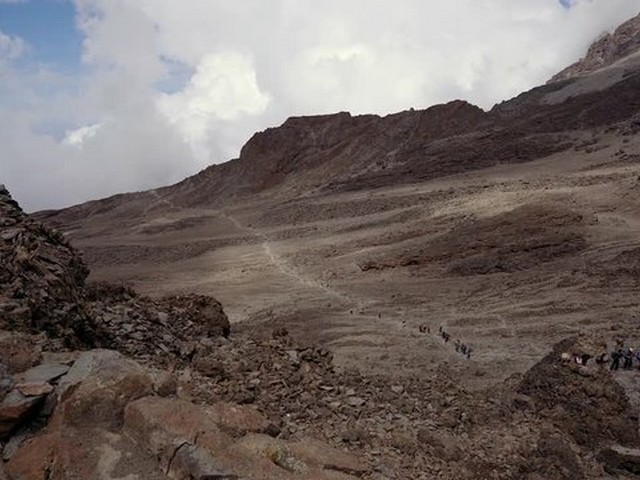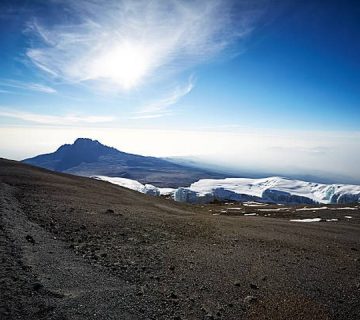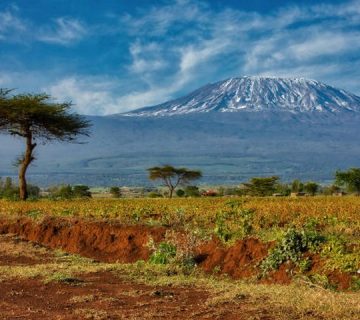Conquer Your First Solo Trek: Kilimanjaro Awaits
Stepping out of your comfort zone and into the wilderness on your own can be a transformative experience, especially when the destination is Africa’s highest peak—Mount Kilimanjaro. At Kilimanjaro Centre for Trekking and Ecotourism (KCTE), we understand the unique challenges and exhilarating rewards of taking on Kilimanjaro solo, particularly for first-time climbers. This blog post is designed to guide, inspire, and prepare you for a solo adventure that promises not just breathtaking views but also personal insights. Ready to embark on a journey of a lifetime? Let’s start climbing!
Why Choose Kilimanjaro for Your Solo Trek?
Mount Kilimanjaro, affectionately known as the "Roof of Africa," is not only famous for its towering height but also for its accessibility to beginners. Unlike other high-altitude climbs, Kilimanjaro offers a non-technical trek, meaning no ropes or specialized mountaineering gear is required. The real appeal, however, lies in its solitary journey against the backdrop of some of the world’s most stunning ecological variety—from rainforests to alpine deserts.
Preparing for Your Solo Kilimanjaro Adventure
Know What to Expect
Understanding the mountain’s environment and what your trek involves is crucial. Kilimanjaro has six different routes to the summit, each varying in difficulty, scenery, and duration. For first-timers, the Marangu or Machame routes are often recommended. They provide gradual acclimatization and have numerous success stories attached.
Physical Preparation
Climbing Kilimanjaro is an endurance test more than a technical challenge. Start a fitness regime at least six months in advance that includes regular hiking, cardiovascular exercises, and strength training. Remember, the better your fitness, the more you’ll enjoy the journey.
Gear Up
Investing in the right gear is pivotal. Key items include a good quality sleeping bag, hiking boots, thermal layers, and a waterproof jacket. Don’t forget your sun protection gear—sunglasses, hat, and sunscreen are essential.
Mental Readiness
Solo trekking tests your mental strength. Prepare yourself to be your own best company, and keep a positive mindset. Techniques like meditation can be very helpful in maintaining mental stamina.
The KCTE Difference: Why Book With Us?
At KCTE, we specialize in crafting personalized Kilimanjaro experiences. We offer:
- Expert Guides: Our guides are certified, experienced, and specifically trained for solo traveler support.
- Safety First: With health checks, rescue procedures, and constant communication, your safety is our top priority.
- Customized Service: From choosing your route to preparing your meal plan, everything is tailored to suit your individual preferences and dietary needs.
- Sustainable Travel: We believe in preserving Kilimanjaro’s beauty for future generations and practice leave-no-trace principles.
Experiencing Kilimanjaro: More Than Just a Climb
Connect with Nature
Solo trekking on Kilimanjaro allows you to connect deeply with nature. Walking through the lush rainforests, observing the wildlife, and watching the sunrise from Stella Point offers a profound sense of connection and tranquility.
Self-Reflection
The quiet solitude of Kilimanjaro provides a rare opportunity for introspection. Many climbers find this aspect to be just as rewarding as reaching the summit.
Cultural Immersion
Interact with the local Chagga people and learn about their rich culture. Understanding the local customs and traditions adds an enriching layer to your trekking experience.
What to Do Post-Climb?
Reaching the summit is an exhilarating achievement, but the journey doesn’t have to end there. Consider a safari in the Serengeti or relaxing on the beaches of Zanzibar to complete your Tanzanian adventure.
Frequently Asked Questions
Can I really climb Kilimanjaro alone as a first-timer?
Absolutely! Many solo beginners successfully summit Kilimanjaro each year, especially with the support of experienced guides like those at KCTE.
What is the best time of year to climb Kilimanjaro?
The best times are during the dry seasons—January to March and June to October. These months offer the clearest and warmest conditions.
How long does it take to climb Kilimanjaro?
It typically takes about 5 to 9 days, depending on the route and your pace.
Are there age restrictions for climbing Kilimanjaro?
There is no official upper age limit, but climbers should be over 10 years old. Fitness and health condition are more critical factors.
Ready to Embrace the Challenge?
Embarking on a Kilimanjaro solo trek as a first-time climber is not just about testing your physical limits; it’s about discovering new personal horizons. At Kilimanjaro Centre for Trekking and Ecotourism, we are excited to guide you through every step of this incredible journey. Book your climb with KCTE today, and let’s make your dream of reaching the summit a reality. The majestic Kilimanjaro awaits your footsteps!
Don’t just dream about adventure—live it! Contact KCTE now to start planning your unforgettable Kilimanjaro solo trek.




